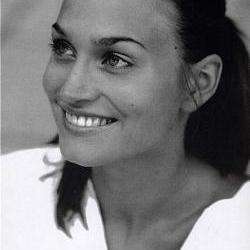What do you get for the composer who made – and also kind of broke – everything? It is hard to overstate Arnold Schoenberg's impact on classical music and its history. In Vienna, his presence looms particularly large, whether as a voice in the heads of composition students, through music performances ringing throughout its concert halls, or in the towering gray center that further his research and legacy.
To celebrate Schoenberg’s 150th birthday, MusikTheater an der Wien decided to unpack all the complexity bound up in Schoenberg’s mammoth, undeniable, and still complex legacy and creat a new production titled Friday the 13th, set in the three halls of the atmospheric Reaktor, formerly known as the Grand Etablissement Gschwandner.
Designed by Johannes Erath and Michael Boder, with dramaturgy by Anna Melcher and Christian Schröder, Schoenberg’s varied musical idioms have been deconstructed, arranged and rewoven together, even inter-stiched with a touch of Bach and Strauss, in both live and recorded renditions. From the opening Gurre-Lieder, accompanied by honky tonk piano, to a recording of Verklärte Nacht which is then taken over a cappella by the Arnold Schoenberg Chor, to multiple versions of the Strauss/Schoenberg waltz arrangements – Lagunenwalzer plays back in one room while Klangforum Wien performs the Kaiserwalzer live in the main hall – the audience is drawn from space to space, from scene to scene.
Video, costuming and interactive theater are combined in an aesthetically rich, non-sequential set of fragmented narratives, more expressionistic feelings embodied on stage than a story per se. The emotional trajectory shifts seamlessly from the grotesque to the playful, joyful, personal, fearful and funereal in a series of dreamlike sequences. A funeral wreath to tonality, a piano-coffin, the uptight bourgeoisie exposed, colorful embodiments of the grotesque playing cards Schoenberg himself designed, bejeweled divas, the haunting roundness of a cratered moon and wistful Pierrots are all part of the visual offering, whether donned as larger-than-life costumes (Noёlle Blancpain), played as stage characters or projected in atmospheric video clips (Bibi Abel).
There is another figure implicitly present throughout: Michael Boder, who passed away unexpectedly before the premiere, and to whom this production is dedicated. Anna Sushon, a veteran music director behind the scenes for years at the Neue Oper Wien, has taken up his baton with calmness and clarity, seamlessly leading Klangforum Wien through a perilous musical pastiche, making it all seem like child’s play.
Likewise, the vocal contingent. Magdalena Anna Hofmann and Christine Schäfer are both wonderful, reprising large sections of works they know intimately, Erwartung and Pierrot Lunaire, respectively, which are mingled together and placed between bites of birthday cake. Throughout, the Arnold Schoenberg Choir did their namesake more than proud, with their excerpts from Die glückliche Hand, Moses und Aron and Ein Überlebender aus Warschau all musical highlights.
Schoenberg’s well-documented phobia of the number 13 aside, he could not have asked for a superior tribute. And audiences in Vienna could not ask for a better blend of birthday-related horror, whimsy and musicianship, or a more appropriately tangled knot of aesthetic reflections on the most significant figure in classical musical modernity.




